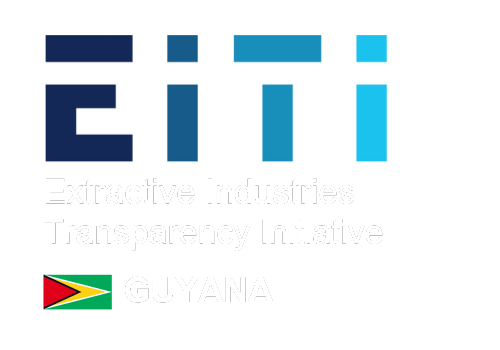Tapping the revenue potential of extractives
Proposals to enhance revenue mobilisation were central to the agenda at the fourth Financing for Development (FfD4) conference, which took place in Seville in early July. The resulting Seville Commitment comes at an opportune time. Domestic revenue mobilisation (DRM) has failed to increase significantly over the past decade, while aid flows are shrinking. New sources of financing are essential to enable public investment in services and infrastructure, and to advance the Sustainable Development Goals (SDGs).
Countries rich in natural resources can scale up revenues by optimising the economic benefits of oil, gas and minerals production. Despite significant potential, these opportunities are not being fully realised in practice.
EITI’s 54 member countries report revenues of between USD 130 and 350 billion from the extractive sector each year. These revenues frequently account for high shares of GDP, overall government revenue and exports. Most EITI implementing countries are classified as resource-dependent. To tap the potential of these resources, such countries seek to balance financing needs with fair systems of taxation. Excessive tax levies can discourage investment and reduce revenue potential.
Preventing revenue leakage
The Seville Commitment encourages “effective taxation of natural resources that optimise domestic revenue.” Yet, corruption and illicit financial flows (IFFs) are recurring challenges in some developing countries and erode gains from effective taxation. Countries that depend on natural resources are especially vulnerable. In 2020, UNCTAD claimed that Africa alone could gain USD 89 billion each year by tackling IFFs, with almost half of this related to the export of extractive commodities. The resulting gain would cut its annual financing gap for the SDGs by almost half.
Prioritising nationally-led approaches
EITI’s strategic priorities address both corruption and domestic revenue mobilisation. Since its inception, EITI has supported resource-rich countries in advancing transparency and accountability through reporting requirements in the EITI Standard.
Building on the objectives and priorities of the Seville Commitment, we suggest five ways in which EITI can be used by countries to secure revenues for development.
1. Empowering multi-stakeholder oversight
EITI has pioneered a unique multi-stakeholder group (MSG) model, which includes stakeholders from the private sector, government and civil society. Such approaches are endorsed by the Seville Commitment as necessary for supporting sustainable development. Each national multi-stakeholder group tailors reporting to match their respective country context and meet minimum expectations. Currently, the EITI supports MSGs in each implementing country across Latin America and the Caribbean, Africa, Asia and Europe. These groups provide oversight and create opportunities for consensus-building.
2. Striking good deals
The Seville Commitment stressesthe value of commodity contracts that provide predictability for investors, while creating certainty for governments. Through its emphasis on commodity trading transparency, the EITI provides country-specific support to evaluate the fiscal impacts of commodity contracts. For example, a report commissioned by EITI-DRC’s multi-stakeholder group found that provisions governing infrastructure investment in a contract for the SICOMINES copper-cobalt project governing investment had not been fulfilled. Subsequent renegotiation of the contract led to the company allocating an additional USD 4 billion to government for this purpose.
3. Promoting local value addition
The Seville Commitment encourages collaboration between investors and civil society organisations to realise the goal of “local value addition and beneficiation of critical minerals”. The EITI mandates all implementing countries to publish the contribution of extractive industries, including employment and local content. As of June 2025, 35 of EITI’s 54 implementing countries had fully met this requirement. Prioritising progress in the remaining countries can help localise the benefits of the extractive sector.
4. Combating illicit financial flows
The outcome document recognisesthe importance of high-quality, disaggregated data for enhancing accountability and transparency. It highlights how sharing accurate and timely data can combat illicit financial flows. Accordingly, the EITI requires timely disclosure of key data points relating to production and exports at the project level. Recognising the value of trade data, Burkina Faso EITI published a recent study identifying almost USD 5 billion of IFFs between 2012 and 2021.
5. Disclosing the ultimate owners of companies
In Seville, parties to the consensus document committed to enhancing beneficial ownership transparency through national databases. Beneficial ownership disclosures are key to combating illicit financial flows. Opening Extractives, a joint initiative between the EITI and Open Ownership, has been supporting the disclosure of beneficial ownership in the extractives industry since 2021. For example, it contributed to improved license disclosure practices in Armenia, which now operates a public register covering over 120,000 legal entities.
EITI’s role
Public disclosures and multi-stakeholder dialogue are key to setting expectations on the contribution of the extractive industries to domestic revenues and ensuring buy-in from civil society and industry. The EITI addresses a persistent blind spot in global tax and financing discussions by highlighting the role and contribution of extractives to revenues, especially in countries rich in critical minerals.
Public disclosures and multi-stakeholder dialogue are key to setting expectations on the contribution of the extractive industries to domestic revenues and ensuring buy-in from civil society and industry.
There is an opportunity to improve revenues in the context of rising demand for resources through the energy transition. But if we miss this opportunity – by failing to invest in the foundations for stronger financial systems such as governance, transparency and government capacity – we risk an uneven, inequitable transition that fuels conflict and division rather than sustainable development in line with FFD4 goals.

